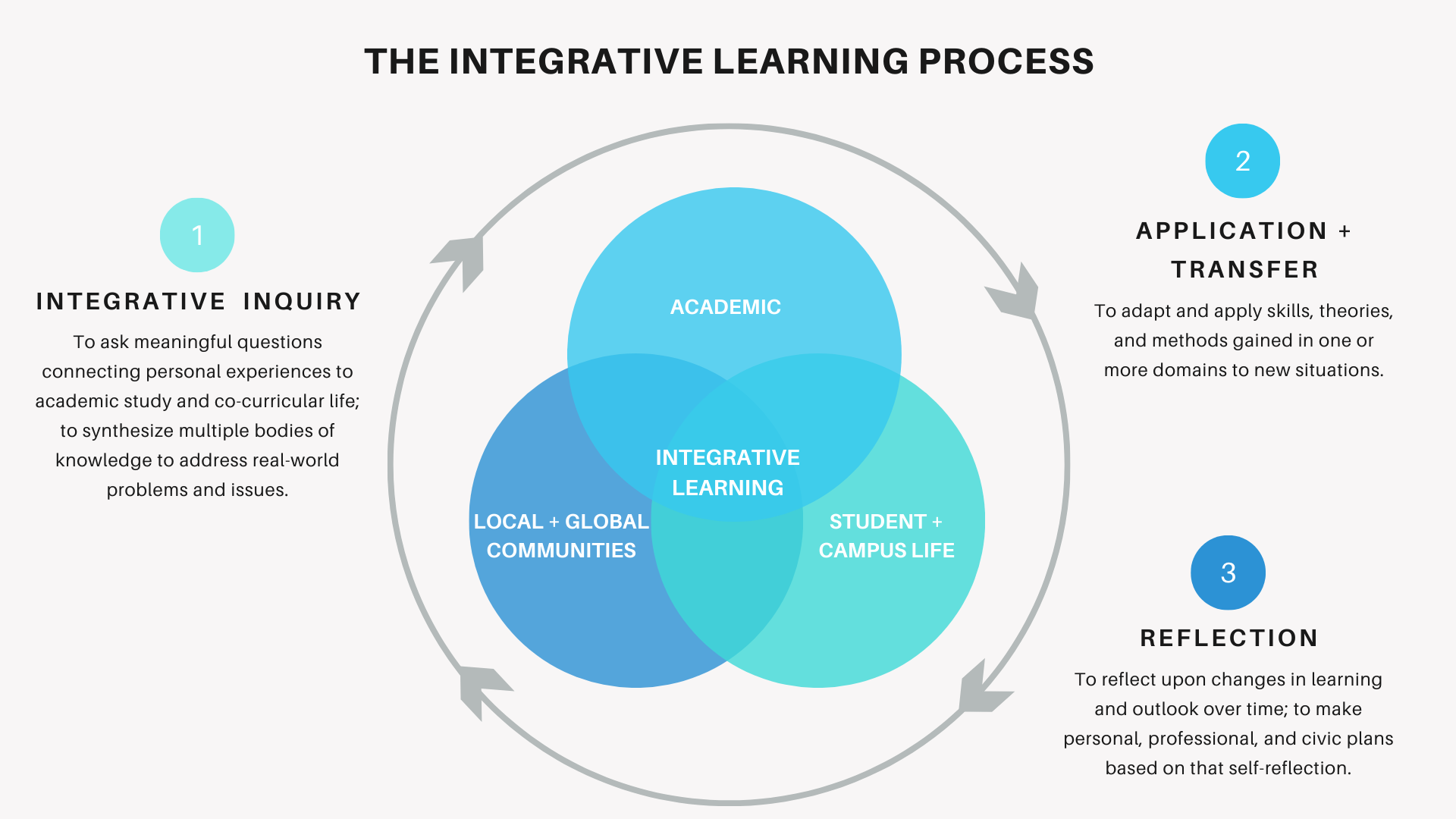What is Integrative Learning?
Integrative learning describes the method and practice of cross-disciplinary thinking and connection-making that is the hallmark of a public liberal arts education. It is also one of the most vital 21st century skills graduates will need to navigate the ever-evolving workforce and, perhaps most critically, to address the magnitude and complexity of today’s global challenges.
Integrative learning describes the method and practice of cross-disciplinary thinking and connection-making that is the hallmark of a public liberal arts education. It is also one of the most vital 21st century skills graduates will need to navigate the ever-evolving workforce and, perhaps most critically, to address the magnitude and complexity of today’s global challenges.
Why does integrative learning matter?
To deal with the magnitude and complexity of today’s global challenges, individuals need to have the capacity to see connections and integrate disparate facts, theories and contexts to make sense of the complexity. They also need to understand how to effectively collaborate, to bridge cultural divides and different perspectives, in order to solve these complex challenges and come up with innovative solutions.
Studies show that current college graduates will change careers frequently throughout their lifetime. In fact, some of the jobs these students will have in the next 20 years don’t even exist yet. The practice of integrative learning, prepares students to be adaptive, to pivot and reinvent their careers as needed.
The Method: Inquire, Apply, Reflect
Integrative learning fosters the ability to connect and combine knowledge and skills acquired through the curriculum and the co-curriculum to new complex situations within and beyond the college and to foster reflection on the ways that such knowledge is utilized.
At SUNY Geneseo, integrative learning is defined in our Geneseo Learning Outcome for Baccalaureate Education (GLOBE) by three key steps:

What does Integrative Learning look like in practice?
Integrative learning develops through high-impact practices like intensive research activities, international experiences, service and community-based learning, internships, advocacy, learning communities, and capstone courses and projects.
Learn about the Integrative & Applied Learning Opportunities at SUNY Geneseo!
